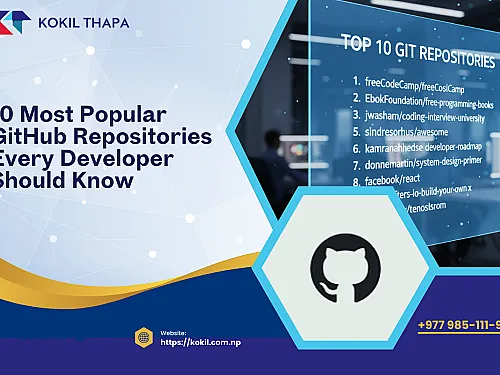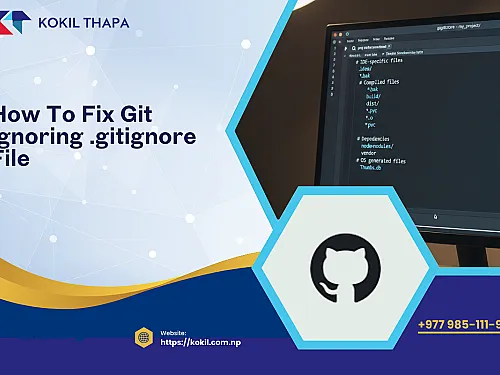
-large.webp)
July 27, 2023
Table of Contents
Laravel has evolved into one of the most elegant, expressive, and powerful PHP frameworks ever created. From routing and Eloquent ORM to middleware, queues, caching, and modern tooling, Laravel empowers developers to build scalable and production-ready applications with minimal effort. However, the real power of Laravel is unlocked when you follow the right development practices—ensuring your code remains clean, maintainable, and efficient as the application grows.
In this article, we dive deep into Laravel best practices, covering everything from project structure, Eloquent performance, Blade patterns, testing, service layers, caching, and modern Laravel 11 architecture refinements. Whether you're new to Laravel or a seasoned developer, applying these practices will elevate your development workflow and the quality of your applications.
1. Keep Routes and Controllers Simple and Focused
Your controllers and routes are the entry points of your application. Cluttering them with business logic makes the code harder to read, test, and maintain.
Best Practices
Keep routes minimal and meaningful
Use resource controllers for CRUD
Avoid writing business logic inside controllers
Offload heavy operations to Actions, Services, or Jobs
Bad Example:
Route::get('/users', function () { $users = User::where('active', 1)->orderBy('name')->get(); return view('users.index', compact('users')); });Good Example:
Route::get('/users', [UserController::class, 'index']);And in your controller:
public function index(UserService $service) { return view('users.index', [ 'users' => $service->activeUsers() ]); }This ensures a clean separation of concerns.
2. Use Eloquent ORM Effectively (But Responsibly)
Eloquent is powerful, but using it incorrectly causes performance issues—especially in large applications.
Best Practices
Use eager loading (
with()) to prevent N+1 queriesUse query scopes for cleaner query definitions
Prefer chunking when handling large datasets
Use DTOs and API Resources for clean responses
Leverage casts, accessors, and mutators
Example of a Query Scope:
// In User model public function scopeActive($query) { return $query->where('active', true); } // Usage $users = User::active()->with('posts')->get();This keeps logic consistent, readable, and reusable.
3. Master the Blade Templating Engine
Blade helps you build clean and modular UI components. Misusing it can lead to bloated templates and repeated code.
Best Practices
Use Blade components for reusable UI
Use layouts for consistent structure
Avoid raw PHP inside Blade
Keep templates minimal and logic-light
Utilize conditional directives (
@auth,@guest,@can, etc.)
Example of a Reusable Component:
{{ $slot }} This replaces long repetitive HTML sections with elegant component usage.
4. Optimize Database Queries Like a Professional
Database performance directly impacts application speed. Poor query habits lead to slow pages, timeouts, and scalability issues.
Best Practices
Avoid SELECT *
Always use proper indexing
Use eager loading
Cache expensive queries
Use database transactions for critical operations
Avoid overloading your models with heavy logic
Example:
$users = User::with(['roles', 'permissions']) ->select('id', 'name', 'email') ->paginate(20);This ensures minimal queries and efficient data retrieval.
5. Implement Caching Strategically
Laravel supports multiple caching drivers: Redis, database, file, array, and Memcached. For high-traffic apps, Redis is generally the best choice.
What to Cache
Repeated queries
Menu/navigation data
Settings
API calls
Dashboard summaries
Frequently accessed lists
Example:
$posts = Cache::remember('popular_posts', 3600, function () { return Post::orderBy('views', 'desc')->take(10)->get(); });Caching is one of the highest-impact optimizations you can apply.
6. Use Middleware for Security and Request Handling
Middleware allows you to filter and intercept HTTP requests before they reach your controllers.
What Middleware Should Handle
Authentication
Role permissions
Throttling
Localization
Logging
API tokens
Maintenance mode
XSS/CSRF protection
Example:
To restrict admin access:
Route::middleware(['auth', 'role:admin'])->group(function() { // admin routes });This ensures clean routing and central security management.
7. Follow SOLID and Clean Architecture Principles
Laravel is flexible, but without discipline, projects become messy. Applying SOLID principles makes your application more maintainable and testable.
Recommended Architectural Patterns
Service Layer
Repository Pattern
Action Classes
Form Request Validation
Dependency Injection Everywhere
Example of Dependency Injection:
public function store(UserStoreRequest $request, CreateUserAction $action) { $action->execute($request->validated()); }This makes the code modular and easy to test.
8. Use Laravel’s Built-in Validation Appropriately
Never perform validation in controllers manually.
Best Practices
Always use Form Request classes
Keep validation logic separate
Use custom validation rules when needed
Take advantage of validation messages
Use DTOs for typed input handling
Example:
$request->validated();This ensures clean, secure request handling.
9. Queue Heavy Workloads
Sending emails, processing images, or performing complex logic in real-time slows down performance.
Use Queues For:
Notifications
Reports
Image processing
Webhooks
Background imports
High-CPU tasks
Example:
ProcessReport::dispatch($report);Laravel makes queueing incredibly simple.
10. Testing Is Not Optional
Laravel’s built-in testing tools help prevent regressions and bugs.
Best Practices
Write unit tests for business logic
Write feature tests for endpoints
Use Pest for better readability
Mock external services
Test edge cases regularly
Testing saves hours—or days—of debugging time.
11. Leverage Laravel Debugbar and Telescope During Development
Use Laravel Debugbar for:
Query profiling
Timeline inspection
Tracking rendered views
Identifying N+1 issues
Use Laravel Telescope for:
Request logging
Exception tracking
Query analysis
Job monitoring
Cache and Redis inspection
These tools give you full visibility into your application.
12. Keep Your Laravel Environment Clean
Security and performance depend on keeping your environment in order.
Best Practices
Never commit
.envfilesUse
.env.exampleproperlyConfigure separate environments (local, staging, production)
Regularly rotate API keys
Keep dependencies updated
Lock down directory permissions
Conclusion
Laravel’s beauty lies in its simplicity—but mastering it requires applying clean, predictable, and scalable coding strategies. By keeping controllers thin, optimizing Eloquent queries, using Blade wisely, implementing caching, applying SOLID principles, and leveraging modern Laravel tools, you can build high-performance applications that remain maintainable as they grow.
Whether you're working on enterprise-level APIs or small-scale applications, following these best practices will transform your development experience and dramatically improve code quality and performance.
For more expert Laravel insights and advanced backend architecture techniques, you can explore the work of a seasoned web developer in Nepal who regularly shares deep technical breakdowns and practical tutorials for modern developers.


-thumb.webp)







